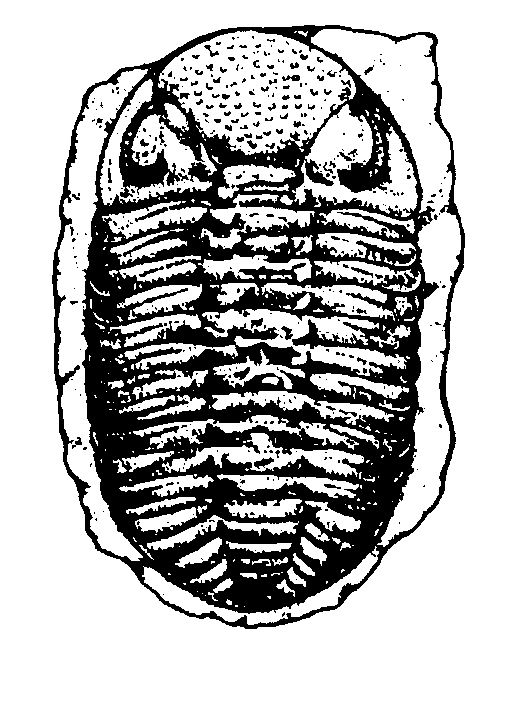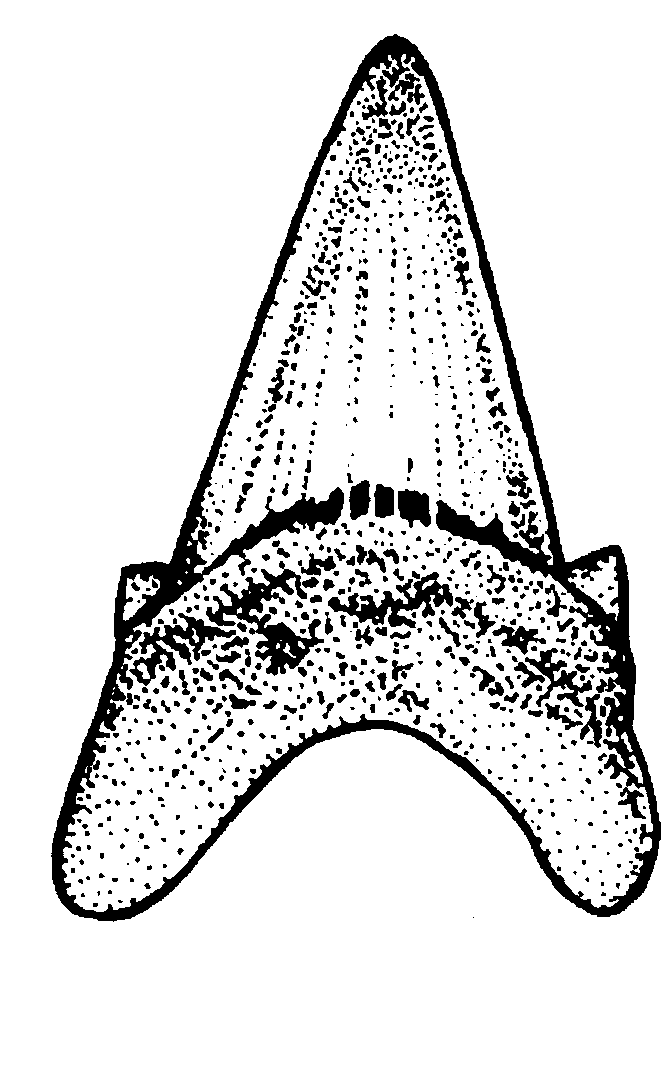 Our
family has an all consuming new interest...fossils. The way this story
unfolds, I am reminded of how lucky we are to be able to homeschool. We
have enough control over our lives to allow intense interests to happen.
In the past six weeks, we have joined the Maryland Paleontology Club for
a day of hunting fossilized sharks' teeth, visited "wild and wonderful"
West Virginia, and joined with the Virginia Museum of Natural History
(VMNH) for a group fossil hunt in the Tidewater area of Virginia. We have
read every book we could find about fossils. We have visited the Department
of Minerals. We even traded dinner for knowledge with a distinguished
fossil author/illustrator who went over all the kids' finds, clarified
any misidentifications we had, and allowed us to pick his brain for an
evening...it was great! All of this sort of just fell into place and the
timing could not have been better.
Our
family has an all consuming new interest...fossils. The way this story
unfolds, I am reminded of how lucky we are to be able to homeschool. We
have enough control over our lives to allow intense interests to happen.
In the past six weeks, we have joined the Maryland Paleontology Club for
a day of hunting fossilized sharks' teeth, visited "wild and wonderful"
West Virginia, and joined with the Virginia Museum of Natural History
(VMNH) for a group fossil hunt in the Tidewater area of Virginia. We have
read every book we could find about fossils. We have visited the Department
of Minerals. We even traded dinner for knowledge with a distinguished
fossil author/illustrator who went over all the kids' finds, clarified
any misidentifications we had, and allowed us to pick his brain for an
evening...it was great! All of this sort of just fell into place and the
timing could not have been better.
As is typical in our house, this learning adventure began as a simple
walk up the street. My nine year old wanted to go to a yard sale all by
himself. Having spent fifty cents, he came home with a glass jar containing
1,013 fossilized sharks' teeth (which he counted many times). We began
our research on the internet and at the library. When the Department of
Minerals opened on Monday morning, we were there to verify what he had
bought and get a date estimate. Because they were picked up on Long Island,
they were dated as approximately 300,000 years old. That certainly got
the kids excited!
 The
following weekend there happened to be a fossil hunt scheduled with the
Maryland Paleontology Club - we found this group on the internet and were
invited to join them at no cost. This was a long road trip (3 1/2 hours
each way) but more than worth it. First of all, we were very successful
in finding fossilized sharks' teeth...lots of them. Second, it was really
nice to be with people who knew their fossils - providing answers to the
many questions my kids posed. And third, we were able to be with people
of all ages who were as enthusiastic as we were. This location provided
fossils from the Miocene Epoch, dating them from 5 - 26 million years
old.
The
following weekend there happened to be a fossil hunt scheduled with the
Maryland Paleontology Club - we found this group on the internet and were
invited to join them at no cost. This was a long road trip (3 1/2 hours
each way) but more than worth it. First of all, we were very successful
in finding fossilized sharks' teeth...lots of them. Second, it was really
nice to be with people who knew their fossils - providing answers to the
many questions my kids posed. And third, we were able to be with people
of all ages who were as enthusiastic as we were. This location provided
fossils from the Miocene Epoch, dating them from 5 - 26 million years
old.
Next, we rented a PATC cabin as close to the West Virginia line as was
available. By this time, we had found a fossil guidebook that was easy
to read and full of helpful advice. It told of some sites in West Virginia
that we wanted to investigate. This time, we were looking for really old
fossils from the Devonian Period, 400 - 500 million years ago. Once again,
we were successful and found many fossils. Most startling to me was finding
shell fossils at the top of a mountain!
Finally, in Tidewater we met up with a VMNH group to hunt for fossils
from the Miocene Epoch. We went to a quarry in the morning and along the
James River in the afternoon. Again, we were not disappointed with the
volume of fossils we found. They were everywhere! This was a larger group
of people (about 50) of all ages interested in fossils. The size of the
group really was not a problem as we spread out at the sites and the paleontologist
roamed around to the different people helping with identification and
questions. What was notable was the genuine interest the people who were
there had; no one was complaining, even the youngest of children.
As novice fossil hunters, we did learn some tips that should make the
going easier for other newcomers. There is definitely an element of danger,
particularly in West Virginia, where sites are often along the road and
the rock is extremely hard. If you are using a pick (we had a good geologist's
pick and a brick hammer), wear safety goggles and gloves. The rocks chip
and splinter as you hammer. Younger kids should be happy to look on the
ground, as we found many loose fossils along the roadsides. Definitely
remember the first aid kit - check your supplies and replenish what is
low. When along rivers and waterways, watershoes help a lot. Some of the
tiny shells can work their way through the shoes, so socks help too.
The mountains in West Virginia are straight up and down and can be hard
on older vehicles. Remember to check your car over before you leave. Do
your car maintenance and watch your temperature gauge. We learned the
hard way this trip and had to be towed out. But, we found those fossils!
I avoided specific names and locations in this column because the resources
near us are tremendous and a lot of the fun is going through the information
and finding what is right for your family. You may want to begin at the
public library with a book we found invaluable, Fossil Collecting in
the Mid-Atlantic States by Jasper Burns. It is published by John Hopkins
University Press and the ISBN number is 0-8018-4141-3.
The Virginia Museum of Natural History has a fossil Science Kit. We are
currently on the waiting list to check it out and have high hopes that
it will be as good as some of the rest. I anticipate it will serve as
a good introduction to the whole idea of fossils. We also plan to join
the Maryland Paleontology Club on a fossil hunt for larger sharks' teeth
in North Carolina. Amazingly, after six weeks of intense focus, the interest
is still strong as we devour more books and research more sites. I credit
homeschooling for allowing us this freedom.
Mary Wilson...
Email: mary@trailz.org
Click here for Jasper Burns' web site and click on Fossil Stuff.
Go back to Happy Trails Home Page